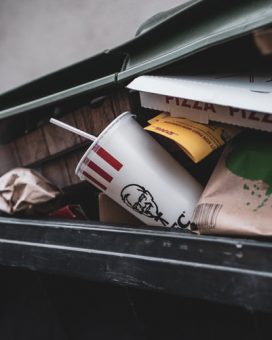
Novi Pazar and Mojkovac are taking a significant step towards sustainable waste management with the upcoming arrival of 2,000 additional containers dedicated to separating packaging waste and a recycling press. Supported by the European Union, these environmental protection measures will be facilitated by NALED (National Alliance for Local Economic Development) through the two-year project “BEST Cooperation in Waste Management – Towards a Sustainable Environment.”
Implemented in partnership with the Center for Ecotoxicological Testing, the municipality of Mojkovac, and PUC “Gradska čistoća” Novi Pazar, this project aims to enhance waste management systems in the municipalities of Kolašin, Bijelo Polje, and Tutin as well. Expert support will be provided to all participating local governments in developing waste management plans, circular economy roadmaps, and action measures for public utility companies. Additionally, awareness-raising campaigns will educate citizens about proper waste separation at the household level.
With the introduction of the two-bin system, households in these regions will separate mixed waste from recyclable packaging waste such as PET, glass, aluminum cans, and paper. Through comprehensive training, representatives from PUCs and municipalities will learn the best practices for waste collection and treatment.
More:
- MORE WORKERS, MORE RECYCLED HAZARDOUS WASTE, A HEALTHIER ENVIRONMENT
- THE UNTAPPED POTENTIAL OF BIO-WASTE IN EUROPE
By 2025, the goal is to implement the new waste separation system in 1,000 households and ten business centers, with a targeted 20 percent improvement in waste collection rates in Novi Pazar, where only 1.6 percent of recyclable waste is currently properly treated. In Mojkovac, where the current percentage is zero, the aim is to collect and hand over 396 tons of recyclable waste to authorized operators within two years.
Serbia and Montenegro have committed to harmonizing national legislation with EU regulations and fulfilling the requirements of Chapter 27, which focuses on environmental protection, as part of their journey towards European Union membership. Serbia adopted the Waste Management Program 2022-2031 last year, emphasizing the development of a waste management system aligned with EU standards, with local governments playing a pivotal role. By the end of 2029, Serbia aims to establish separate collection systems for paper, metal, glass, and textiles, increase recycling rates, and eliminate illegal landfills. Montenegro faces similar challenges, as roughly half of municipal waste ends up in unsanitary landfills due to a lack of proper disposal infrastructure.
Novi Pazar and Mojkovac are paving the way for sustainable waste management practices, promoting environmental preservation, and working towards a cleaner future for their communities.
Source: NALED



